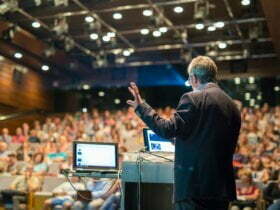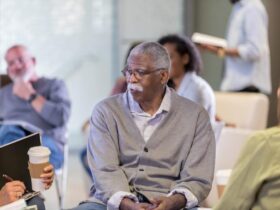Professor Karen Canfell’s paintings on cervical cancer screening techniques are anticipated to store hundreds of Australian girls’ lives in the next 15 years. However, the cancer research director at Cancer Council NSW started her professional schooling as an electrical engineer. That brought about work inside the clinical gadgets industry. Campbell’s interest in how generation could help improve our health had more than one unintentional side outcome.
First, it taught her how scientific trials and regulatory affairs labored. Second? She realized she wanted to take a specific direction. “I concept plenty approximately the problems in public fitness and decided to retrain,” Canfell says. Retraining took her to Oxford University for a Ph.D. in public fitness and epidemiology. “That turned into my entrée to an exclusive way of working in medical studies,” she says. That became nearly 20 years in the past.
Since then, Campbell’s profession has trodden a hit, but a fairly conventional pathway for clinical researchers: the Ph.D. brought about a post-doctorate, which led to a studies role on the NSW Cancer Council and to work on the new cervical cancer vaccine. “I became inquisitive about assisting policymakers [understand how to] implement vaccinations and combine it with cervical screening,” she says.
NHMRC supply investment observed. “That became the start of building a team and a research program,” she says. In these days’ competitive environment for studies funding, careers in medical research require away more than solid clinical understanding. “Being an unbiased researcher that runs their own studies program and teams calls for you to be enterprise-minded and pretty entrepreneurial in a few ways. It’s approximately genuinely properly-rounded: you need to reflect onconsideration on group control, budgeting, and to assume strategically about the lengthy-time period viability of your program of labor, such as how to keep your crew stable,” Canfell says.
Roles for clinical researchers exist in the industry, authorities (including policymaking roles), and more conventional academic environments. “There are special entry paths for every,” she says—the traditional entry into medical studies – a Ph.D. – remains applicable. And at the same time, as Canfell says, there’s nevertheless a critical position for simple fundamental research. The researchers of today – and the day after today – will do well to recollect the modern-day studies’ realities.
“There’s tons extra of a focal point now on the policy relevance or carried out elements of studies this is publicly funded. How does it exchange practice and coverage, or how does it translate into actual-world effects for sufferers or the populace as a whole?” she says. Given that groups at the moment are pretty valued in clinical research, it’s right to try to discover an effective team early for your career.
“We want big teams to examine huge-scale information units, do complicated models of the future, and run big trials. Suppose you begin building your profession with a studies team with a product line of studies [in an area] where there’s an actual want in the public sphere for the effects. In that case, I think to generate possibilities continually,” Canfell says.
Study:
A Ph.D. in your vicinity of interest remains a famous direction for the ones searching for a profession in medical studies. Discover a mentor (beyond your Ph.D. supervisors) early on in your work.
Skills:
“There are roles that are very analytical and information-pushed. However, there also are many jobs in studies where you need excellent human beings skills, true conversation and writing competencies, and suitable management skills as you cross further on and manipulate teams,” says Canfell.
Tips:
Given nowadays’s emphasis on teamwork in scientific research, emergent researchers should consider how their talents will help in crew surroundings.














